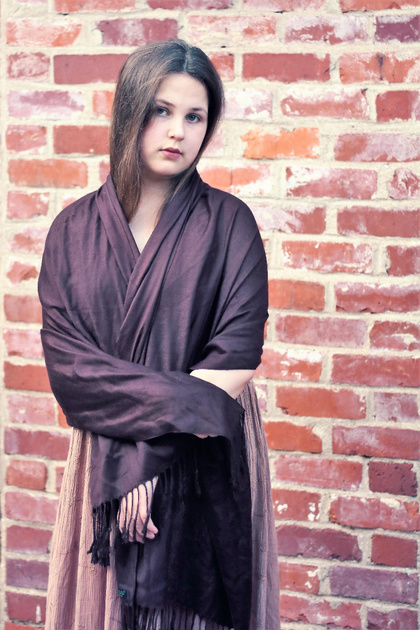
The previous article differentiated between chinuch and control. Whereas chinuchis long- lasting and emanating from within the child, control is short–lived and external- i.e. we can force our child to behave but only while he is in our presence. But, as parents, we want more than just learned, automatic, albeit good, behavior. We want our children to choose to do the right thing-in public and in private.
Unfortunately, too many of us, way too often, resort to pressure in our efforts to get our children to behave appropriately. Though we suspect that there is a better way, we are flummoxed by the many challenges our children present and then react – all too often poorly.
Though we put great stock in training, it is critical to note that training is not chinuch. It is one of the host of strategies – but it certainly has its limitations. Training is an excellent beginning strategy for the very young, and a fine one for us all to fall back on. When we are pressed or unsure, our early training and habits stand us in good stead. But habit has limited traction, as the story of the cat trained to be a waiter who forgets himself when a mouse is let loose teaches us.
Chinuch is more than training and good habits. It is internal, in every fiber of our being. It is about being clear in our values and beliefs and making sure that our choices are in alignment with them. So, even though we will all be put in unforeseen, novel situations, the background imbedded in us directs us to the Torah choice.
So, how are we best mechanech our children? There have been tens of thousands of seforim and books written about this subject, and I urge my readers to find books that talk to them. In this brief article, I will highlight some of the concepts I find important and hope that you will be inspired to look into them in greater depth.
Model-Children- and adults- copy what they see. And, despite complaints about the school and bemoaning the streets- what children see most is us. Be what you want to see.
Mom believes in being generous and sharing and hopes her children will adopt those values. She gives her home freely and loves making tzedaka parties. It is a bit surprising, but she also grumbles about the stream of meshulachim at the door and passes by the homeless without a second glance…
Unfortunately, the mixed message is not lost upon her daughter who is happy to share her largesse with the popular girls, but oblivious of all the others…
Give Choices- To make choices, we have to be aware that we have that responsibility, to recognize that bechira is the cornerstone of yiddishkeit. We need to practice – to get in the habit of making choices and taking responsibility for them.
Unfortunately, force aborts that process. People who have been coerced their whole life have no experience in making choices. They often do not believe that they even have the right to make choices. When faced with a challenge, they expect to be told what what to do – or do what their parents did. Or, maybe, instead of choosing, react- in anger, frustration, or resentment.
By allowing our children choices [within a reasonable framework for our family], instead of forcing discipline, we are preparing them for a healthy Torah existence.
The Staub kids are really into Monopoly. Unfortunately, though the first hour goes well, the game eventually devolves into a cheating fest with accusations of “you’re a cheater” and money hurled around the room. Bedlam.
Now, Dad knows what his father would have done: confiscated the game or hurled it in the garbage.
But, what would the children have learned? To fight sotto voice and out of Dad’s earshot? Stop throwing fake money?
Dad wants his kids to learn something more and decides to try something else. He calls the kids together and gives them a choice. They could agree on some mechanism for disagreement or play a different game. It’s their choice – and hopefully one that would spur them on to make similar choices based on sholom bayis in their adulthood.
Relationship- The only real claim we have on our children is our relationship to them. We cannot influence our children in a positive way until we have formed a connection to them. This idea has been captured in the phrase ‘connection before correction’ by Jane Nelson in her classic Positive Discipline. When children feel connection, they feel significance and belonging. Often that alone is enough for behavior to stop.
However, when they are punished and criticized, they pull away from us. They do not want to please us; in fact, they may choose to misbehave to get back at us.
Elly is the ‘no-fair’ child in the family. No matter what it is – treats, privileges, attention, stuff- he is convinced that the distribution is unfair – to him of course.
The parents have tried it all. Lectures, talks, mussar shmuessen, consequences, and punishments- useless.
After a particularly frustrating day of ‘no-fairs’ the parents decide to go another way- to begin a campaign of convincing Elly that they are on his side. They listen and hug- even when they don’t feel like it. They validate his feelings They stop arguing him down.. And try to spend some special time with him every evening.
Now I’m not in the habit of telling tall tales, so I can’t say it ended happy ever after right away. But, after a long, hard few weeks, parents did detect a thawing in Elly’s attitude. They felt convinced that they were on the right track and that ‘connection before correction’ was the way to go.
Like Elly’s parents, we often wish it wouldn’t be so hard. Maybe we recall our own parents who may have never bothered to think about this stuff at all. We wish we could just teach our children to listen- or simply force their hands. But, we know that every generation has its issues and as astute parents, we want to figure out how to effectively conquer the challenges of our day.
Photo by anitapeppers at Morguefile.com
Reprinted from Binah magazine.
 Previous
Previous

